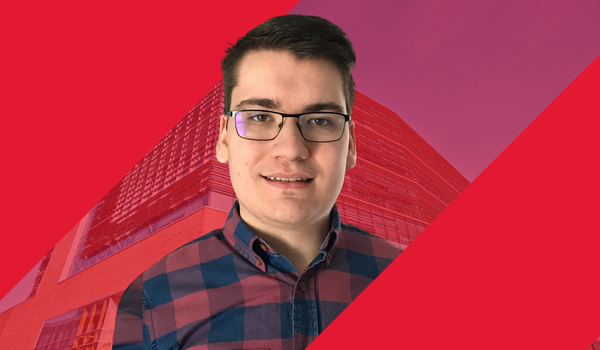Are you interested in a field that combines the fundamentals of physics, chemistry, and biology with computation, data science, and programming? The University of Maryland’s Biocomputational Engineering bachelor’s degree program may be the perfect launch point for your career!
Peek at Life as a Biocomputational Engineer
If you would like to learn more about the University of Maryland’s Biocomputational Engineering degree program and how you could earn your degree in as little time as possible, you’ll want to attend the UMD at Shady Grove Open House taking place on Tuesday, April 26th, at 5:00 p.m.
Attendees will have the opportunity to take part in information sessions and tour our six-story Biomedical Sciences and Engineering education facility. You’ll also have the chance to speak one-on-one with our staff to learn more about the transfer pathway that works best for you – whether you’re a current undergraduate at a two- or four-year institution, a high school student who’s planning ahead, or someone who’s looking to explore a career change.
This open house event is free and open to the public, but you must register in advance!
Disrupting Health Care
Are you curious about what’s happening on the cutting edge of bioinformatics and biomedical research? Plan ahead to join us during your lunch break on Friday, April 22nd, as we host a free noon webinar titled Digital Twins, Artificial Intelligence, and New Perspectives on Patient Care.
During this event, you’ll hear from Drs. Lindsay and Stahlberg as they talk about the myriad of ways digital twins could transform health care, particularly in the realm of cancer care. Dr. Lindsay will also share his own perspective on how advances in biomedical research are pointing to new avenues for vaccine development and infectious disease treatment.
What exactly are digital twins, you ask? Put simply, a digital twin is a virtual representation or digital counterpart of a physical object or process. In health care, a digital twin can serve as a crucial substitute for the human body, allowing scientists and clinicians to leverage data to examine possible treatment outcomes.
Webinar attendees who would like to meet with the speakers – or network with fellow attendees – are invited to take part in a special “Meet & Greet” 20-minute. In addition, those who would like to use this opportunity to meet with Biocomputational Engineering staff to ask about the application process or learn more about career opportunities in the field can hop on over to a “What can I do with a biocomputational engineering degree?” meeting.
Register today to attend the free webinar and any add-on sessions.


